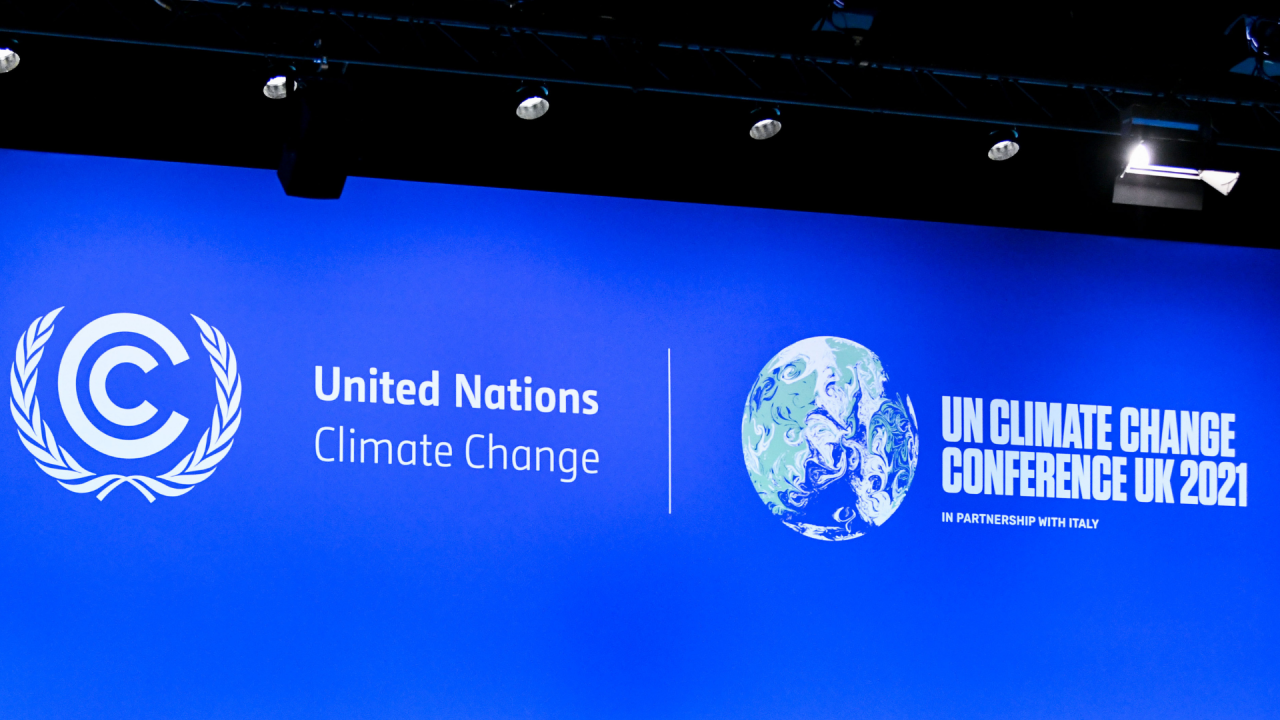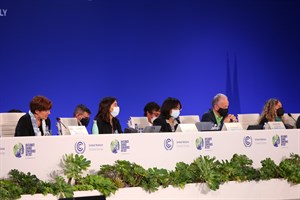
 The world's eyes were on Glasgow last week, where thousands of decision makers, politicians, scientists, activists, and industry lobbyists attended the United Nations's 26th Climate Change Conference, also known as COP26. Their goal: to agree on climate action that would keep the global average temperature rise to below1.5 degrees C. Among the delegates attending the conference was ICTP's Erika Coppola, a climate scientist and a co-author of the most recent state-of-knowledge report from the Intergovernmental Panel on Climate Change (IPCC).
The world's eyes were on Glasgow last week, where thousands of decision makers, politicians, scientists, activists, and industry lobbyists attended the United Nations's 26th Climate Change Conference, also known as COP26. Their goal: to agree on climate action that would keep the global average temperature rise to below1.5 degrees C. Among the delegates attending the conference was ICTP's Erika Coppola, a climate scientist and a co-author of the most recent state-of-knowledge report from the Intergovernmental Panel on Climate Change (IPCC).
The IPCC was created to provide policy makers with regular assessments of science related to climate change. Coppola is one of more than 200 scientists who are part of IPCC's Working Group 1, a team of co-authors that worked for nearly four years to put together the latest report on the physical basis of climate change, released in August 2021. The two other Working Groups will release their reports on the impacts, adaptation and vulnerability to climate change (Working Group 2), and the mitigation of climate change (Working Group 3) in February 2022. All of the IPCC reports are key references for the negotiators at COP26.
Each IPCC report includes a Summary for Policy Makers, a 13-page document that is approved word by word by representatives of the world's countries before being released. "The delegates we were addressing at COP26 are not new to us," says Coppola. The audience members for the IPCC events Coppola took part in were the same delegates who were involved in the two-week approval process for the Summary for Policy Makers for the latest report. "During the approval process last August, the questions were very, very precise. And they are questioning every single word that you have in the report, because they want to make sure that the tone of the report is not policy prescriptive for them, but it does have to be policy relevant."
With the Summary for Policy Makers approved and released, the IPCC events at COP26 presented the report with time for delegates to ask clarifying questions as they used the summary in their negotiations. "Valérie Masson-Delmotte, Co-Chair of Working Group 1, was the one giving the presentation, and then we, as the authors, all came on the stage to answer to the delegates' questions," explains Coppola.
At COP26, multiple IPCC events presented the findings on the science for an audience of delegates. "For me, it was a very good experience to be there on the stage," says Coppola, reflecting on her experience taking part in two presentations given by the IPCC's Working Group 1 team. "As part of doing the IPCC report, you have to deliver it, and that presentation was part of the delivery. And then you know that you have done as much as you can."
Coppola explained how the huge event was organised: "COP26 is divided in two parts. There is a blue zone where there are the negotiations going on, and then there is another zone in which pavilions from all the countries and institutions were set up, including the IPCC pavilion. There we did science dissemination; the people that come to the pavilion are aided by scientists from all over the world. We got many journalists that wanted our help in interpreting some of the results or how to the communicate some of the results."
For the country delegates attending the COP26, the event poses a delicate balancing act. "Of course, the problem is clear to everybody, but some countries are a bit more reluctant to decrease their emissions," says Coppola. "We know what the carbon budget is, how much was emitted so far and from who it was emitted. Countries are willing to collaborate, because they are there. But they also have in mind their own work as a policymaker in the country, so they try to find a way between the science and what they need to do."
Coppola knows the findings of the latest IPCC Assessment Report are guiding more than just the official delegates at COP26. "Whenever we get a request to do outreach to non-scientists, we do it," she notes. "This is why we also produce some material that is more ready to use for this kind of dissemination event." All of the authors use the report's findings in their teaching, and are always willing to speak to the public about climate change science and how our planet is being changed by emissions.
As with all COP meetings, the goal is agreement and commitments to climate action. Five years after the Paris Agreement in 2015, after a delay due to Covid-19, the COP26 meeting has big, urgent goals. Coppola knows that the stakes are high. "As for what I hope comes out of COP26, from a personal point of view, I hope that there will be something that is concrete," Coppola says. "As a scientist, I hope that we really improve the knowledge of the negotiators with this report and it is helping them shape better action. Because now with this report, we are more precise on what are the time boundary and the emission boundary for action. I hope that this will help them somehow."
---- Kelsey Calhoun













